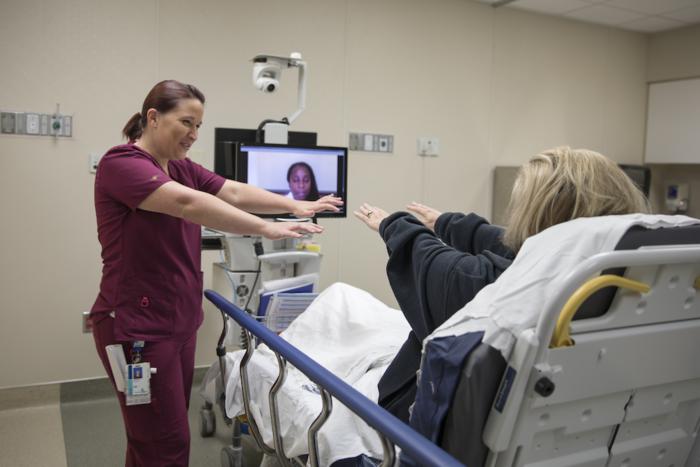Let me take a look: AI could boost diagnostic imaging results
In radiology, diagnostic imaging requires specialized knowledge to interpret the findings associated with a wide variety of diseases. Fortunately, in recent years, generative AI models, such as Chat Generative Pre-trained Transformer (ChatGPT), have shown potential as diagnostic tools in the medical field, but their accuracy must be evaluated for optimal use in the future. Credit: […]

In radiology, diagnostic imaging requires specialized knowledge to interpret the findings associated with a wide variety of diseases. Fortunately, in recent years, generative AI models, such as Chat Generative Pre-trained Transformer (ChatGPT), have shown potential as diagnostic tools in the medical field, but their accuracy must be evaluated for optimal use in the future.

Credit: Osaka Metropolitan University
In radiology, diagnostic imaging requires specialized knowledge to interpret the findings associated with a wide variety of diseases. Fortunately, in recent years, generative AI models, such as Chat Generative Pre-trained Transformer (ChatGPT), have shown potential as diagnostic tools in the medical field, but their accuracy must be evaluated for optimal use in the future.
Therefore, Dr. Daisuke Horiuchi and Associate Professor Daiju Ueda of Osaka Metropolitan University’s Graduate School of Medicine led a research team that compared the diagnostic accuracy of ChatGPT and radiologists. They used 106 musculoskeletal radiology cases with patient medical history, images, and imaging findings.
For this study, each case’s information was put into GPT-4 and GPT-4 with vision (GPT-4V) to generate diagnoses. As for the radiologists, a radiology resident and a board-certified radiologist were provided with the same cases and asked to determine the diagnoses. Results showed that GPT-4 outperformed GPT-4V and was on par with radiology residents. On the contrary, the diagnostic accuracy of ChatGPT was subpar in comparison to board-certified radiologists.
“While the results of this study indicate that ChatGPT may be useful for diagnostic imaging, its accuracy cannot compare to a board-certified radiologist. Additionally, this study suggests that its performance as a diagnostic tool must be fully understood before it can be used,” stated Dr. Horiuchi. “Generative AI, including ChatGPT, is advancing every day, and it is greatly expected to become an auxiliary tool for diagnostic imaging in the future.”
The findings were published in European Radiology.
###
About OMU
Established in Osaka as one of the largest public universities in Japan, Osaka Metropolitan University is committed to shaping the future of society through “Convergence of Knowledge” and the promotion of world-class research. For more research news, visit https://www.omu.ac.jp/en/ and follow us on social media: X, Facebook, Instagram, LinkedIn.
Journal
European Radiology
DOI
10.1007/s00330-024-10902-5
Method of Research
Observational study
Subject of Research
People
Article Title
ChatGPT’s diagnostic performance based on textual vs. visual information compared to radiologists’ diagnostic performance in musculoskeletal radiology
Article Publication Date
12-Jul-2024
COI Statement
The authors of this manuscript declare no relationships with any companies whose products or services may be related to the subject matter of the article.
What's Your Reaction?

































